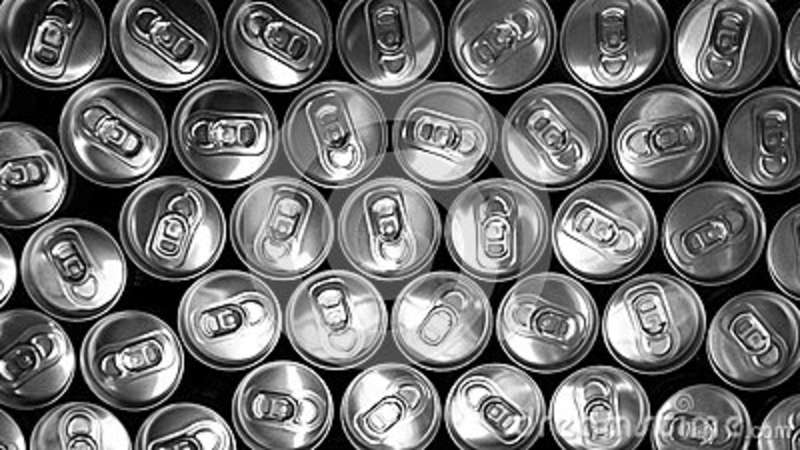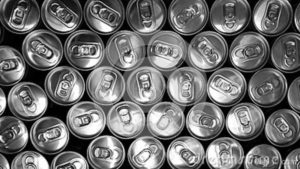
Perhaps one benefit of President Trump’s tariffs and trade war will be to illustrate standard results of trade theory.

One general result is that a domestic tariff against imports also increases the domestic price charged by domestic producers of the protected good. There is only one price in the market for a given good (quality being constant). Domestic producers will get the same higher price that foreign producers charge tariff-included on the domestic market. I gave an example of steel prices as reported by the Wall Street Journal in my post “A Simple Illustration of Standard Trade Theory,” July 3, 2018.
On Wednesday, the Journal gave another example, this time on aluminum prices:
Aluminum prices in the U.S. have climbed this year after the Trump administration imposed a 10% tariff on imported aluminum in March.
Although we still don’t have much data, Pittsburgh-based Alcoa is reported, for the third quarter, to have
had a net benefit of $27 million from the tariff as a result of higher prices on aluminum it produced in the U.S. Alcoa said its overall price for raw aluminum sold in the quarter rose by 10% a ton.
This is why protected domestic companies usually love a tariff. For Alcoa, though, the result is more ambiguous as the company imports part of its aluminum from its foreign smelters, especially in Canada, and these imports were hit by the tariff. As the Journal says, this “has limited [the company’s] ability to benefit from the tariffs.”

READER COMMENTS
Jon Murphy
Oct 19 2018 at 1:12am
True. The trade war is turning out precisely as standard trade and public choice models would predict: concentrated benefits, greater but dispersed costs, and increased lobbying for protections/exemptions.
Benjamin Cole
Oct 19 2018 at 9:11am
Hmmm. But the Chinese currency, the yuan, has depreciated about 10% this year. So, in dollars, Chinese steel should cost about the same.
Moreover, Beijing is rebating taxes to China exporters to compensate for American tariffs.
This has a curious effect that taxes formerly collected in China on aluminum exports are now rather collected as tariffs America, but the price may stay about the same
Indeed, if China deliberately offsets US tariffs by cutting taxes on exports, we just see a shift in tax revenue into the US Treasury, as opposed Beijing pockets while prices stay the same.
Now that is a result that’ll never be mentioned by free-trade theologians!
Thaomas
Oct 19 2018 at 10:52am
Exchange rate appreciation of the restricting country is exactly what standard trade theory predicts. That the restricted country would liberalize in some sectors (exports, which is mutually beneficial) while restricting more in others (imports, which is mutually harmful) IS outside standard theory, which has no explicit theory about how trading partners react to trade restrictions. Whether these reactions are on net welfare improving for the restricting country is hard to say, but hardly offset the self-harm of the restricting countries original restrictions.
Benjamin Cole
Oct 20 2018 at 6:30am
Thaomas:
I no savvy.
So China sells aluminum at (for example) at $10 per unit.
The US adds a 10% tariff.
China, in response, eliminates a 10% tax on exported aluminum.
The price in the US is the same, but now the US collects tariff revenues, while China loses tax revenues. US consumers of aluminum should see no detectable difference.
In this case, there is a benefit to the US of imposting the tariff.
See this
China to increase export tax rebates on 397 products
2 MIN READ
BEIJING (Reuters) – China said on Friday it will increase export tax rebates for 397 items ranging from some steel products to electronic ones, in a bid to boost prospects for shipments amid its trade war with the United States.
—30—
So, one benefit of tariffs could be it would shift collected taxes to the importing nation, away from the exporting nation.
Also, the China yuan is down about 10% YTD against the dollar.
The odd reality: Chinese aluminum should be cheaper now in the US than when the year began!
Alcoa is raising prices 10%, and it is suggested there is lesson in that. But then, we are 10 years deep into an economic recovery from 2008. China aluminum is not more expensive, in US dollars. Thus, this lesson is hollow.
The real lesson is that after 10 years of economic recovery, one might expect some commodities inflation.
BTW, in 40 years of financial reporting, I have never heard a public company say, “We are raising prices to make more profit. The demand is there to warrant a price hike, and we have an obligation to maximize return to our shareholders.”
Public companies ever say they are “forced” to increased prices due to rising costs, etc.
In addition, I never heard a public company say, “To maximize returns to shareholders we are closing down US plants and shifting to cheaper labor in China or Mexico.”
BTW, I believe in private enterprise, and the obligation of public companies to make as much money as possible, regardless of social or economic consequences to any particular city, region or nation. The job of a corporation is make money and that is a worthy job.
The foreign policy of a nation is another matter.
Thaomas
Oct 21 2018 at 8:48am
Sorry, I do not understand what part of my argument you do not understand. If Country C liberalizes exports of some product, (in response to additional restrictions on trade in other products by Country U or for any other reason) that of course benefits them (and possibly their trading partners).
I also fail to understand the remarks about companies motivations for the explanations they may offer for their actions. Explanations I assume are attempts to influence policy in ways that maximize profits.
Pierre Lemieux
Oct 20 2018 at 11:59am
Benjamin Cole: “Free-trade theologians” do know how to take a general-equilibrium perspective when needed! See my other post at https://http://www.econlib.org/tariffs-and-the-trade-deficit/.
On your other point, what economic actors declare has virtually no bearing on their real motivations (that’s why economics is needed to understand what’s happening): see the link to my previous post in the post above.
Benjamin Cole
Oct 21 2018 at 1:52am
I appreciate your solid grounding in free-trade economics.
However, you did not anticipate the situation in which China would increase export tax rebates to compensate for US tariffs. Neither did I for that matter.
But since China has taken the compensatory action, we can now say that the US is in fact benefiting from the tariffs that it imposed on Chinese imports.
This does not mean I support tariffs in all situations or that I am against international trade
I do wonder if any region can regard borrowed income, or the selling of assets and derived income, as equal to earned income, from long-run perspective. That is, long-run, large and chronic trade deficits do matter.
Jon Murphy
Oct 22 2018 at 2:36pm
No, that doesn’t logically follow since the actor imposing the subsidy here is not the same one as who is bearing the costs or benefits of the trade (and likewise with the actor imposing the tariff).
Hazel Meade
Oct 22 2018 at 1:44pm
This assumes that subsidizing exports is the *only* response to the tariffs that the exporting country enacts. But why would they do that? The subsidies are a cost to them, so they will likely want to recoup that cost by imposing tariffs elsewhere. So there is some loss to other producers in the importing nation. And of course then you basically have a reallocation of capital from the private to the public sector, and more micromanagement of international trading patterns, which leads to inefficient outcomes overall.
Plus you can also reverse the order of events. Since tariffs are often a response to subsidies, then suppose china subsidizes it’s steel first, why would it be better to impose tariffs than to let consumers purchase the steep more cheaply and leave the benefits in private hands? Why would you favor transferring money from private hands to public coffers by imposing import tariffs?
Robert Schadler
Oct 19 2018 at 11:25am
I appreciate the main point of this piece, but another caught my eye:
“There is only one price in the market for a given good (quality being constant).”
Think this conflates an individual exchange IN the overall market for THE MARKET.
An individual buyer takes many other factors into consideration in addition to quality: location, urgency, money resources, location, likely future price, might be among them.
Too often there is a debate between “the market is almost always right” and eagerness to argue “market failure.” Take the stock market. Each transaction is agreed upon by buyer and seller. But the overall market to any individual stock is constantly changing. While pro-market folks like to suggest the market price is always right, one could more accurately say the last price (a split second ago) is likely slightly wrong. A new price is about to be set, which will again be slightly wrong a second from now. In this kind of market, each individual price sets the stage for the next price. So, in some markets, the price the individual seller and buyer agree to is different for the aggregate market price.
Thaomas
Oct 19 2018 at 11:31am
Is this the ultimate in Pollyanna political analysis? President Trump’s trade policy will lead to a renewed appreciation of the benefits of multilateral trade? And the “Tax Cuts for the Rich and Deficits Act of 2017” will show up the wisdom of Keynesian prescriptions of deficit reduction while the economy is near full employment? And the proposed Wall will lead to better application of cost benefit analysis to dubious infrastructure investments? And the attempted deportation of Dreamers will lead to policies to attract greater numbers of highly skilled and educated immigrants?
Indeed we do live in the best of all possible worlds! 🙂
Pierre Lemieux
Oct 20 2018 at 12:02pm
Thaomas: Yes, “Tout va pour le mieux dans le meilleur des mondes.” And after a few millennia of horrible tyranny and terrible suffering, our descendants may rediscover individual liberty for a few fleeting centuries!
Comments are closed.